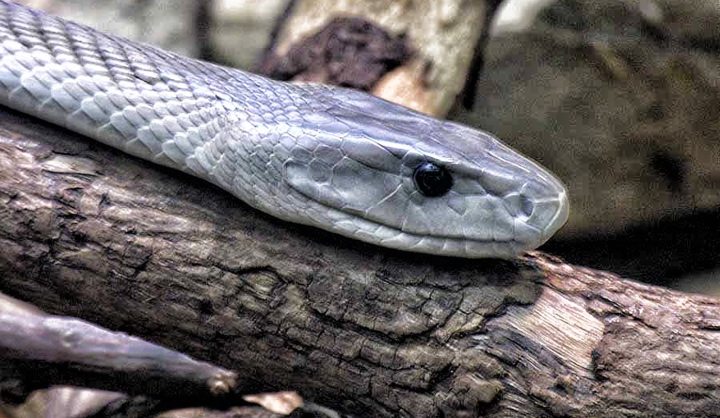Maverick Life, South Africa
Two weeks until Africa runs out of leading anti-venom

Lots of people get bitten by snakes in Africa. If they reach medical help in time, many are treated with Fav-Afrique – an all-purpose anti-venom that can counteract bites from 10 of the continent’s most dangerous snakes. But all remaining stocks of FAV-Afrique will expire at the end of June, and no one is making any new supplies. By SIMON ALLISON.
On all medication, there’s a little date stamped on to the product somewhere that tells you when it will expire. Unlike the “best before” on a carton of milk, this is not a date that medical professionals – nor their patients – can afford to ignore.
The expiry date for all remaining stocks of Fav-Afrique, an anti-venom, is at the end of June. From next month, doctors on the continent will no longer be able to use the most effective treatment for bites from some of Africa’s most dangerous snakes. To make matters worse, there will be no new supplies for at least another two years.
Snakebites are a problem all over the world, with about 5-million people being bitten annually. But it’s a particular problem in Africa, which hosts especially poisonous species, and about 30,000 Africans are estimated to die from snakebites every year. Without Fav-Afrique, that number is expected to rise.
A case in point: Nyajinma, a six-year old girl from South Sudan, was bitten by a snake one night as she was sleeping. Her mother carried her for an hour-and-a-half to the nearest health centre, but they didn’t have any anti-venom. So Nyajinma was referred to a Doctors Without Borders (MSF) facility in the nearest town, Agok. When she got there, she was quickly given two doses of Fav-Afrique. She survived.
Although other anti-venoms exist, Fav-Afrique is special because it can treat so many different types of snakebites, including those from carpet vipers, spitting cobras and puff adders. Unlike other anti-venoms, it has a proven safety and effectiveness record all over sub-Saharan Africa.
“We will have to use two different anti-venoms as an interim solution,” said Christine Jamet, MSF programme manager for South Sudan. “Treating patients will become much more complex, as the alternative anti-venoms don’t cover the same wide range of snake species as Fav-Afrique. This is a problem as victims rarely know the specific type of snake which bit them. Now we will have to treat them according to the symptoms. We are unsure what impact this will have on our patients, but today we have no other choice.”
The story of how Africa ran out of Fav-Afrique is a sorry one. The drug is manufactured by a French pharmaceutical company called Sanofi Pasteur, but they decided in 2010 that the product was no longer financially viable. Instead, they decided to concentrate their resources on a far more profitable rabies vaccine, producing the very last batch of Fav-Afrique in 2014. The company argues that when they made this decision, many governments were buying generic anti-venoms from India – not realising that they were not as effective as Fav-Afrique.
Nonetheless, the company was slow to sell Fav-Afrique’s formula to another company, and hadn’t by the time they stopped producing in 2014. They still haven’t.
“Sanofi Pasteur regrets the worldwide situation with respect to the supply of anti-venom immunoglobulins and is studying options that would enable the transfer of know-how to other biologicals producers who would be willing to take over the production,” the company said in a recent statement.
Given that it takes at least two years to produce the anti-venom – a laborious process that involves injecting snake venom into horses, and then harvesting their antibodies – this guarantees at least a two-year gap in availability.
As Daily Maverick asked last year, when we raised this issue: “That’s all well and good from the perspective of Sanofi’s shareholders, but it illustrates a few glaring holes in the global public health system. Why has it taken so long for Sanofi to sell on its intellectual property, given that it decided to halt production five years ago? Why did no one anticipate the gap in production? Whose responsibility is it to ensure that someone, somewhere, is producing an anti-venom that works?”
These questions remain unanswered. It’s clear, however, that the international health system has failed Africa once again. DM
Photo: Dendroaspis polylepis – the Black Mamba, by Dick Culbert via Flickr

















 Become an Insider
Become an Insider